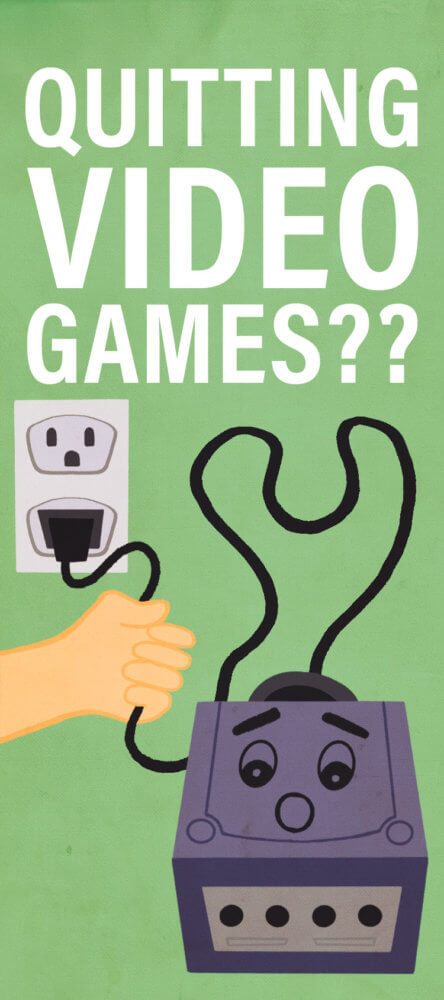I love video games. And with how much of my precious, limited time I’ve given them, I’d hope they love me, too.
In fact, I once estimated that I had put two or three full months of time into Pokémon games alone. That was probably ten years ago, and I’ve since played another three generations of games.
I don’t regret spending my time this way, and I loved it all. But in the last year or two, I’ve noticed a couple of unsettling trends in my relationship with my games.
The first is that I had begun using games as a coping mechanism for discouragement in other areas of my life. If I didn’t feel good about myself or the situation I found myself in, I relied on them for an escape.
The problem with this is that unlike almost any other activity I’ve ever chosen to spend my time doing, video games don’t help my self-esteem. And they certainly don’t help me get through any other obstacles in life. At best, they might pleasantly distract me for a while before dropping me off right back where I started with my real problems.
The second is that I had also started treating games like a series of new checkboxes for my to-do list. I really wanted to play Kingdom Hearts III when it came out, but I hadn’t played every game in the series. To remedy this, and therefore allow myself to play the new game, I fully intended to force myself through 40-60 hours of gameplay within just a few weeks.
It was at that moment that I realized I had to do something. So I decided to do something I had tried and failed to do before — take a hiatus from my beloved games.
As I write this, my hiatus ended only a few days ago. I did play the new Kingdom Hearts yesterday, but I also spent some time reading a new book. I haven’t played at all today, but I did take a long walk outside and hang out with some friends. So far, my relationship with video games seems to have changed for the better.
But the real lesson here isn’t limited to games.
The success of this experiment was a startling reminder of how much of our time is spent habitually — and a startling reminder of how much we have to gain by breaking those habits when they no longer serve us.
Things mentioned in this episode:
This week’s episode is sponsored by:
- Brilliant: Accelerate your learning in math, science, and computer science. Start learning for free at Brilliant.org/CollegeInfoGeek — and if you’re one of the first 83 people to use this link, you’ll also get 20% off your subscription.
- Audible: Get a free audiobook download and a free 30-day trial by going to audible.com/CIG or texting “CIG” to 500-500 on your phone.
Other things we mentioned in this episode:
- Unity
- Can We Do Anything About Burnout? (Ep. 247)
- Children of Time, by Adrian Tchaikovsky
- Essentialism: The Disciplined Pursuit of Less, by Greg McKeown
- Game Quitters on YouTube
- Game Quitters’ Hobby Tool
- Buying vs. Renting a Home: What’s the Smartest Choice? (Ep. 248)
- Freshly
- How to Create a Study Space in Your Room
Want more cool stuff? You can find all sorts of great tools at my Resources page.
Timestamps:
- 0:02:25 – Why Martin decided to take a break from gaming
- 0:07:03 – Benefits of quitting video games for a while
- 0:17:34 – Sponsor: Brilliant (Learning problem-solving skills)
- 0:19:59 – Sponsor: Audible (Listening to audiobooks)
- 0:25:15 – How Martin changed his setup and whether he’ll stick with it
- 0:33:11 – Struggling with video game addiction and too many hobbies
- 0:39:57 – Conclusion
If you enjoyed this episode, subscribe to the podcast on iTunes! It’s easy, you’ll get new episodes automatically, and it also helps the show gain exposure 🙂 You can also leave a review!
Here’s an image for sharing this episode on social media:


